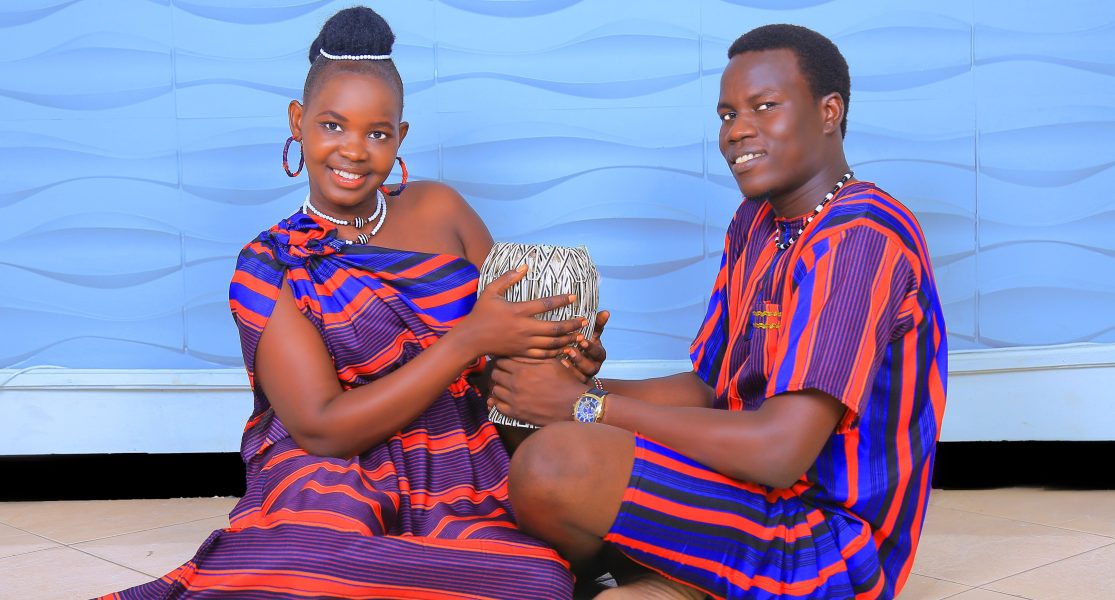
On May 16, 2021, in the heart of Juba, a celebration unlike any other took place; a traditional wedding that became legendary across South Sudan, Africa, and even the globe. The union of Bush Buse and Dr. Mercy Ali Malou, both proud representatives of the Mundari tribe, not only showcased their love but also revitalized a cultural pride that had long been overshadowed by foreign influences.
The wedding was a spectacular display of Mundari customs: colorful, vibrant, and refreshingly simple. Unlike the lavish, often Westernized ceremonies that drain pockets and drown traditions in excess, Bush and Mercy opted for an authentic, humble celebration.
Local materials took center stage: the bridal team wore open-toe sandals fashioned from tyres, affectionately called “Mutukeli” for the men and “Gwolier” for ladies, and Mundari Jalabia. Men carried sticks, symbolizing strength and tradition, while women donned ‘Tondura’ and ‘La’u,’ traditional attire that proudly bore their cultural identity.
What made this wedding truly stand out was its affordability and authenticity. It was a celebration built on the foundation of Mundari values; simplicity, community, and pride. The entire event was praised not only for its beauty but also for resisting Western commercialization, proving that culture does not need to be expensive or elaborate to be meaningful.
Nearly 4,000 guests from all corners of South Sudan and beyond gathered to witness this union. Attired in traditional dress, they flooded the Mundari Wedding Venue, turning what was expected to be a modest affair into a cultural carnival.
The event shattered stereotypes; many attendees had long believed Mundari men and women were not handsome, educated, romantic, or beautiful. That day, they were proven wrong, and the world took notice.
The wedding sparked a wave of pride among South Sudanese and Africans. Many, especially from tribes like Dinka, Pojulu, Bari, Shiluk, and others from Bahr El Ghazal, Equatoria, and Upper Nile, expressed newfound admiration for Mundari attire and culture.
Some even declared that Mundari men were now their preferred choice for marriage, and traditional wear like the Tondura, Jalabia, and Mutukeli became fashionable symbols of national pride.
The wedding’s impact extended beyond the local scene. Comedian Kideno’s humorous yet heartwarming skit from the event garnered over a million views, making it one of the most-watched clips about South Sudanese comedy and culture worldwide. Social media exploded with praise.
Comments poured in from South Sudanese across tribes, Africans from neighboring countries, and even Western audiences applauding the authenticity and beauty of the Mundari tradition.
Many praised Bush and Mercy for their bravery in showcasing their culture on such a grand scale. They became exemplars of how traditional marriage can be celebrated with dignity, elegance, and pride without succumbing to Western or Nigerian trends that often dominate African weddings.
For years, Mundari people, especially young women and men, faced stereotypes branding them as backward, illiterate, or less attractive. The wedding flipped that script entirely. Women dressed in traditional attire for the first time in many years saw a surge in pride and a desire to embrace their roots. Mundari men, once viewed as rustic or rough, now gained admiration for their rugged handsomeness and cultural richness.
This event also ignited a movement across South Sudan tribes from all regions began adopting Mundari traditional outfits, not just for weddings but also for national celebrations, cultural festivals, and travel. The narrative shifted from Westernization to cultural appreciation, embracing unity in diversity.
Beyond the spectacle, Bush and Mercy shared heartfelt advice that resonated with many: marry for love, manage finances wisely, and support each other. Mercy emphasized the importance of mutual respect and the power of love as the true foundation of marriage. Bush highlighted the value of humility, hard work, and cultural pride, encouraging young men and women to grow from humble beginnings and stay true to their roots.
As they celebrate their fourth anniversary, Bush and Mercy’s story continues to inspire countless others. Their union wasn’t just about two people tying the knot; it was a declaration of cultural resilience, pride, and the beauty of South Sudanese traditions. Their wedding has become a symbol, a blueprint for future generations to cherish and uphold

